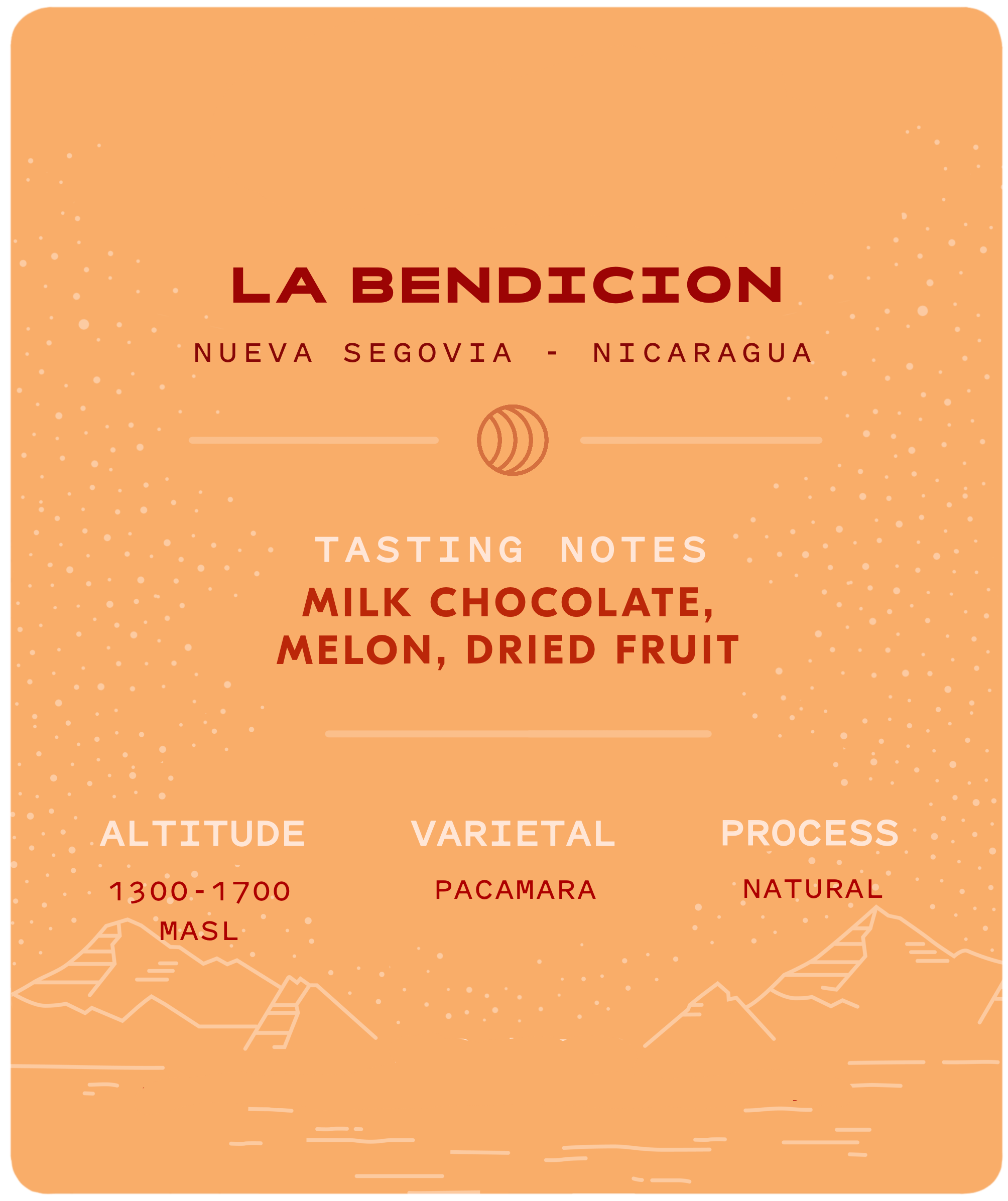La Bendición, Nicaragua



La Bendición, Nicaragua
We have been partnering with Luis for almost ten years, and his coffee blows us away every time. He has won and ranked highly many times in competitions, including the infamous Cup of Excellence with lots from his farms: Un Regalo de Dios, La Bendicion, La Esperanza, and Lo Prometido. In this lot of La Bendicion, we taste milk chocolate, melon, and dried fruit. An all-around balanced, easy-drinking cup.
Origin: Nicaragua
Process: Natural
Varietal: Pacamara
Altitude: 1,450 - 1,650 masl
Farmer: Luis Balladarez
Tasting Notes: Melon, milk chocolate, dried fruit
Please note that there is a THREE BUSINESS DAY turnaround for all roastery shipment and pickup orders (your order will be processed the business day after it is received and shipped the following day.)
Orders placed on a Friday and over the weekend will be roasted on Monday and available for pickup on Tuesday. You will receive an email confirmation when your order is ready to be picked up or has shipped.
La Bendición is owned by Luis Balladarez. We visited Luis in March of 2013 and tasted nearly 60 lots from farms Luis owns as well as some from his neighbors. While we cupped several this year from another of Luis's farms, Regalo de Dios, this particular lot from La Bendición outshone the rest. Luis's farms are located on the top of La Cordillera de Dipilto y Jalapa, the mountainous north of Nicaragua, which holds its highest mountains. The chain splits northern Nicaragua from Honduras and alters the climate significantly. The town of Ocotal, where Luis lives and where the dry mill, Las Segovias is situated, sits on the southern side of the range. The climate in Ocotal is nearly desert dry: scrub brush and the desiccated trees of the Dipilto-Jalapa pine forests belie its tropical environment. The rainless climate makes drying coffee easy. One only has to cross the top of the cordillero, however, to find the lush green of the Pacific tropics; and here, Luis’ coffees grow. His farms are subdivided by cultivar: one area for red Catuai and one for yellow; one for Maragogype, another for Pacamara. The commercial, higher yield varietals grow at lower altitudes, the specialty, lower yields at higher altitudes. Precarious paths cut through the fields and as we walk, sampling the taste of the fruit as pass, our guide points out lizards, spiders, snakes, and squirrels. The canopy above us protects the shade loving coffee trees from direct sun. Pickers are hard at work when arrive and, aside from a lunch break, still at work when we leave.
